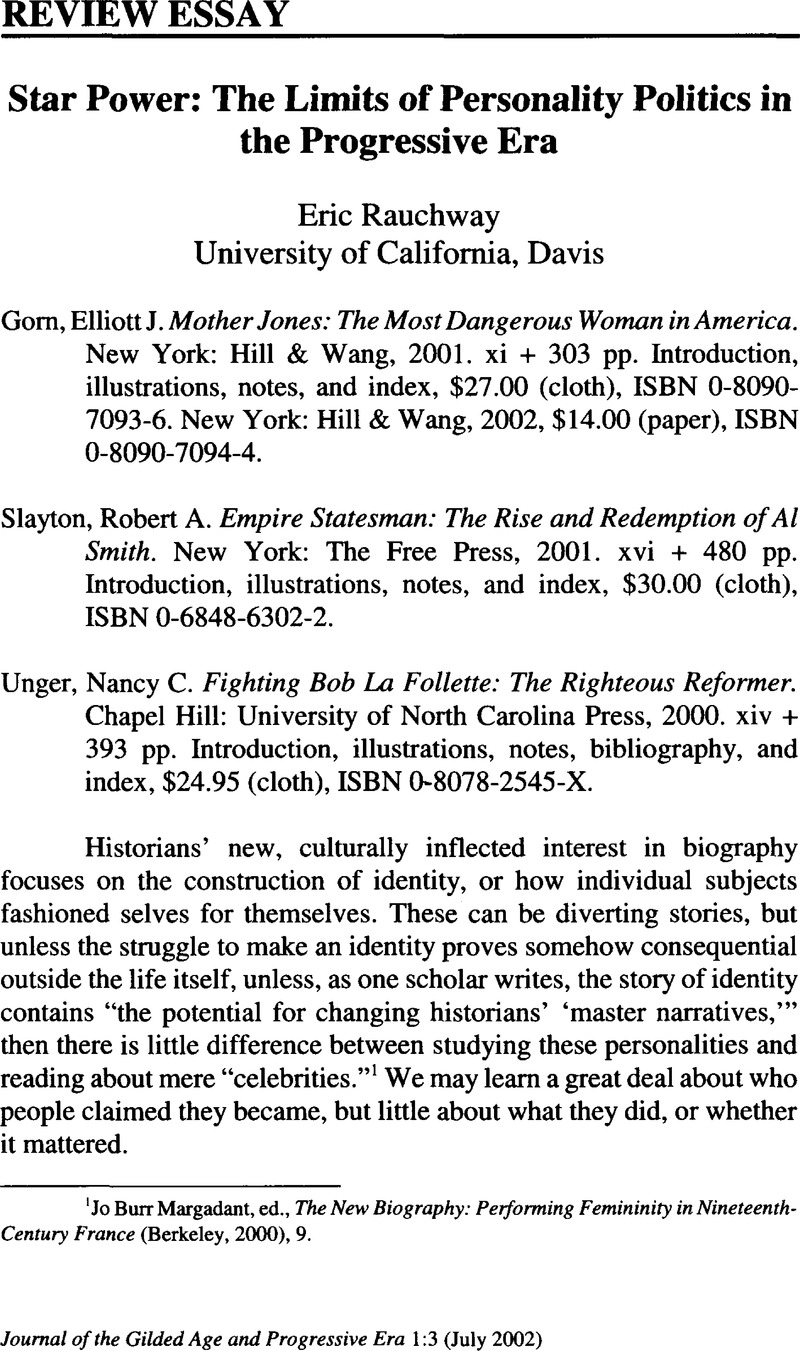No CrossRef data available.
Article contents
Star Power: The Limits of Personality Politics in the Progressive Era
Review products
Published online by Cambridge University Press: 08 November 2010
Abstract

- Type
- Review Essay
- Information
- Copyright
- Copyright © Society for Historians of the Gilded Age and Progressive Era 2002
References
1 Margadant, Jo Burr, ed., The New Biography: Performing Femininity in Nineteenth-Century France (Berkeley, 2000), 9.Google Scholar
2 Charles Beard to Curtis Hitchcock (of Macmillan publishing), March 15, 1930, Charles and Mary Beard Papers, DePauw University, Greencastle, IN. The deal failed on the stated grounds that Beard's increasing deafness made it impossible for him truly to make use of intimate access to Rockefeller. Ivy Lee to CAB, September 6, 1933, Beard Papers.
3 Sanders, Elizabeth, Roots of Reform: Farmers, Workers, and the American State, 1877–191 7 (Chicago, 1999), 164–65.Google Scholar
4 Thelen, David P., “Social Tensions and the Origins of Progressivism,” Journal of American History 56 (September 1969): 323–41.CrossRefGoogle Scholar
5 The most recent rendition of the boyish hero thesis is Brands, H. W., T. R.: The Last Romantic (New York, 1997).Google Scholar The best-known version of the sissy thesis is Vidal, Gore, “Theodore Roosevelt: An American Sissy,” in United States: Essays, 1952–1992 (New York, 1993), 723–37.Google Scholar
6 Quoted in Rauchway, Eric, The Refuge of Affections: Family and American Reform Politics, 1900–1920 (New York, 2001), 85.CrossRefGoogle Scholar
7 Thelen, David P., The New Citizenship: Origins ofProgressivism in Wisconsin, 1885–1900 (Columbia, MO, 1972).Google Scholar
8 Gorn, Elliott J., “Equivocal Responses,” Chronicle of Higher Education, July 20, 2001.Google Scholar
9 Kennedy, David M., Freedom from Fear: The American People in Depression and War, 1929–1945 (New York, 1999), 257–73.Google Scholar


